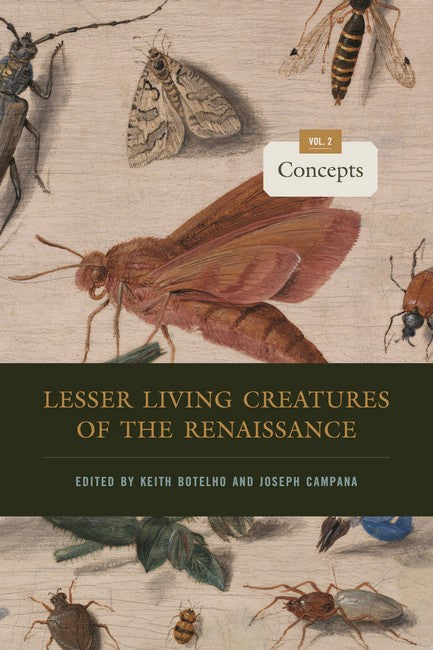Keith Botelho is Professor of English at Kennesaw State University. He is the author of Renaissance Earwitnesses: Rumor and Early Modern Masculinity. Joseph Campana is William Shakespeare Professor of English and Director of the Center for Environmental Studies at Rice University. He is the author of The Pain of Reformation: Spenser, Vulnerability, and the Ethics of Masculinity and the coeditor, with Scott Maisano, of Renaissance Posthumanism.
Request Academic Copy
Please copy the ISBN for submitting review copy form
Description
List of Illustrations Acknowledgments Introduction Concepts Joseph Campana 1.Sting Stinging like a Bee in Early Modern England Julian Yates 2. Scale Lesser Living in the Renaissance Joseph Campana 3. Pest Environmental Justice and the (Early Modern) Rhetoric of Pest Control Jennifer Munroe and Rebecca Laroche 4. Infestation Out of Africa: Locust Infestation, Universal History, and the Early Modern Theological Imaginary Lucinda Cole 5. Habitat and Politics "Regardles of his gouernaunce": Exploring Human Sovereignty and Political Formation in Early Modern Insect Habitats Andrew Fleck 6. Consume Consuming Insects Amy L. Tigner 7. Decompose Worm Work Frances E. Dolan 8. Locomotion Creeping and Crawling Keith Botelho 9. Communication Tettix Lowell Duckert 10. Swarm Song of the Swarm Derek Woods 11. Illumination "Living Lamps" Jessica Lynn Wolfe Epilogue Concepts Keith Botelho List of Contributors Index
"This is a superb and richly varied collection that does justice to the dazzling variety of entomological writing in the Renaissance. . . . Lesser Living Creatures of the Renaissance makes a significant contribution to animal studies, the environmental humanities and the history of science, particularly in its attention to scale and the ways that literary insects both underwrote and pressured the centrality of analogy as the episteme of pre-Enlightenment natural history." -Todd Andrew Borlik Renaissance Studies "Lesser Living Creatures of the Renaissance brings a welcome and timely focus on early modern understandings of insect life, ideas, and work that stood, as the authors convincingly argue, in the midst of the transformation of natural history 'as literary authority' to embodying the new scientific ideas and observational methods of the era. This two-volume work makes a significant scholarly contribution to literary studies and history by bringing insects and insect life into these conversations." -Martha Few, author of Baptism Through Incision: The Postmortem Cesarean Operation in the Spanish Empire "There has not previously been such a wide-ranging collection as this. Lesser Living Creatures of the Renaissance is a vital new contribution to not only early modern studies, not only animal studies and ecocriticism, but also to the history of science, the history of medicine, and current debates about the environment." -Erica Fudge, author of Quick Cattle and Dying Wishes: People and their Animals in Early Modern England

